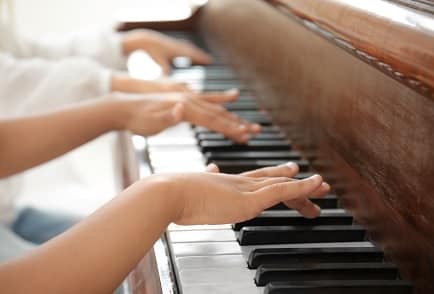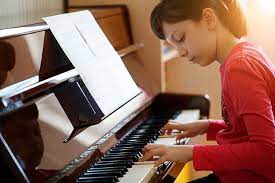You might be preparing for college and wanting to learn about the piano, or you might have interests in learning how to play the piano after work hours or during spare time.
Do you think you are practicing enough? Are you good enough? This brings us to the question of how many hours a day I should practice piano? The answer is short and simple, as you are expected to practice playing the piano from fifteen minutes to five hours.
When you look at top pianists, you will be surprised at the answers you will get regarding how many hours is ideal for practicing how to play the piano.
At the age of five, Lang Lang practiced playing the piano for as long as six hours every day, and his father oversaw his practice routine daily. On the other hand, Evgeny Kissin practiced playing the piano for about twenty minutes every day at six.
Popular violin instructor Leopold Auer once said that practicing with the fingers might take the entire day, but you only need one to two hours when you practice with your mind.
Another popular figure, Chopin, made a statement and said practicing more than two hours a day is enough to last all through the summer. Still, all that is required is attentiveness, alertness, and complete concentration: all of these make up good practicing.
Chopin described practicing playing the piano for six hours as a useless, unintelligent, and mechanical labor that will not yield productive results, so the number of hours you practice every day isn’t as important as most people think it to be.
The problem lies in setting hour-based goals, and you might not know when it is enough if you have no idea where you are going.
People will be hit with different answers when they google “how many hours a day should I practice piano,” Not clarifying your goals will hinder your opportunity to find the right answer.
Clarifying your goals and certain questions leaves a lot of unanswered questions racing through your mind. For example, do you think you’re practicing enough? Do you want to mentor students? Become a professional pianist? Or end up as a professor at a college?
Must Read: Is Piano Easier Than Guitar? Here’s Our Opinion
Content Navigation
Clarifying Your Piano Goals
The big question is; “how do you get clarity on your goals”? David Allen once said the why the question is the best question anyone can ask a consultant, and this explains why eight-year-olds are the best consultants.
Asking ‘why’ questions will help you obtain clarity regarding your goals, and you will arrive at key motivation and clarity when you ask yourself the ‘why’ question.
The irony of it all is you might spend fifteen to thirty minutes practicing how to play the piano, and you will end up being the most productive compared to someone that spent six hours learning how to play the piano.
This is why we mentioned earlier that it isn’t always all about how much time you spend practicing playing the piano.
How Many Hours A Day Should I Practice Piano

Now that you have succeeded in setting a goal regarding improving playing the piano, the next thing you need to work on is how long you have to practice every day.
About ten to twenty minutes of practice daily can allow you to learn more about improvising and reading chords. If you can clarify your goals, you will determine how much time you can spend practicing every day.
Having a goal in mind but not knowing how much time you need to practice should urge you to sort out the nitty-gritty of the details of what an effective practice should look like. This will lead us to the next question on how to practice piano deliberately.
How To Practice Piano Deliberately
When you eventually sort out and clarify your goals, you will be concerned about what your everyday practice will look like. This is the point where you have to initiate deliberate and purposeful practice, which can be divided into two different parts.
These are purposeful practice and expert advice, and you might end up getting expert advice from a tutor.
Purposeful practice has four components: frequent discomfort, immediate feedback, intense focus, and specific goals.
The Concept Of Joyful Practice
Every vocalist and instrumentalist knows that every practice session will be enjoyable with less frustration, which means sudden breakthroughs will be increased when frustration is reduced. For example, have you taken time to watch someone practice playing the piano?
Have you considered recording yourself when practicing how to play the piano? Have you watched a group of students in a school practice playing the piano?
You are bound to notice two things when you watch people practice playing the piano, and these are mere repetitions of mindless practice.
Deliberate practice has proved to be draining over the years because it required a lot of energy to maintain attention regarding the task at hand. In all honesty, you are likely to be unproductive when you practice for more than one hour a day, and you might not even be emotionally or mentally ready for it.
The most dedicated individuals will find it very difficult to practice for about four hours a day, and studies have shown that practicing from one to eight hours will yield minimal results.
The most crucial factor is to maintain the level of concentration required to sustain. Five keys will help in making every practice session effective, and these five keys are mentioned below;
- Timing
- Duration
- Goals
- Problem-solving attitude
- Doing smart work
It is totally wrong to expect a beginner piano student, whether a child or adult, to practice playing the piano for about thirty minutes. This means the early stages of practicing playing the piano involve playing for about ten to fifteen minutes.
The first several weeks of practicing playing the piano don’t require too much time to practice, and you will suffer burnout when you try practicing too hard.
Related Posts
Does Playing The Piano Make You Smarter?
5 Best Speakers For Piano Music 2023
Does A Piano Need To Be Tuned?
How Many Keys Are There On A Piano

